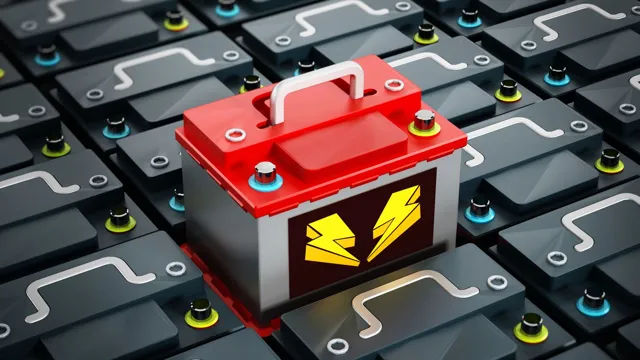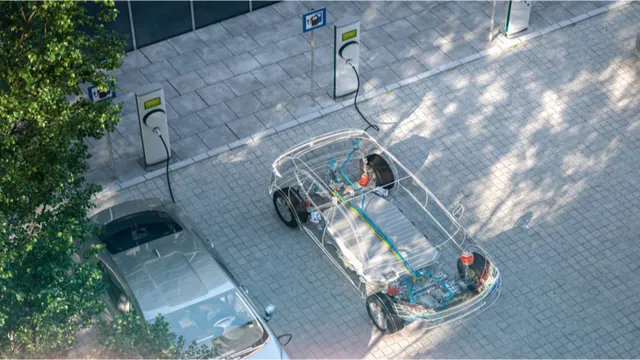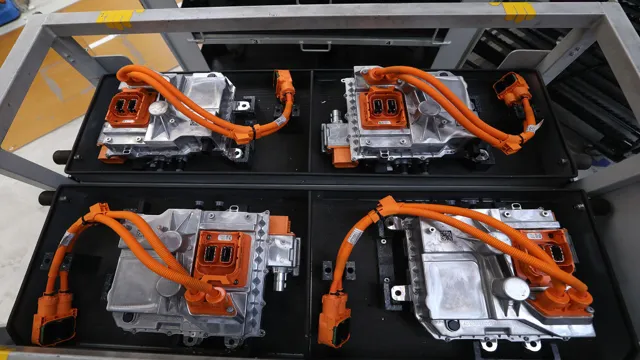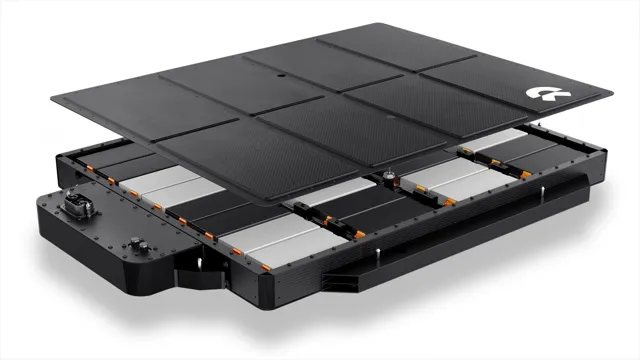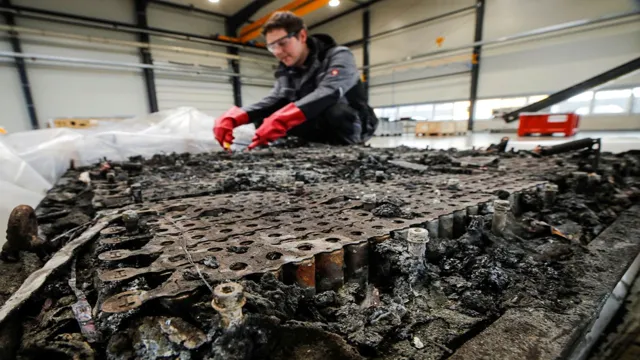Powering the Future: Top 5 Electric Car Battery Manufacturers in India
Are you looking for eco-friendly transportation options? In recent years, the popularity of electric vehicles (EVs) has increased significantly across the globe. EVs offer an environmentally friendly option for those who are concerned about air pollution and want to reduce their carbon footprint. India is one such country that has been moving towards electric mobility in recent years.
With the Indian government’s focus on creating a sustainable future, several manufacturers are producing electric cars at an affordable price range. However, one essential component of an electric car is the battery. In this blog, we will discuss the prominent electric car battery manufacturers in India.
Overview of Electric Car Market in India
India is witnessing a rising trend in the adoption of electric vehicles as more and more people become aware of the environmental benefits they offer. As a result, there has been a surge in the demand for electric car batteries. The country is home to several electric car batteries manufacturers, including Exide Industries, Amara Raja Batteries, and Tata AutoComp, among others.
These companies are at the forefront in developing high-quality, durable, and efficient batteries that power electric cars. Additionally, the Indian government has been supportive of the growth of the electric vehicle market, offering incentives to both manufacturers and buyers. This has led to the development of research and development centers that are helping to improve the quality and production of electric car batteries in the country.
With the continued support of the government and the increasing awareness of the benefits of electric cars, the electric car market in India is set to grow significantly, providing more opportunities for electric car batteries manufacturers in India to innovate and deliver more efficient products.
Current State and Future Projections
Electric Car Market in India The electric car market in India is still in its early stages, with only a handful of models on offer. However, the government has set a target of having 30% of all vehicles on the road electric by 2030. This has led to increased interest and investment in the sector, with both domestic and international manufacturers introducing new models to the market.
The main players currently are Tata Motors, Mahindra & Mahindra, and Hyundai, with other manufacturers planning to join in the coming years. Despite the increase in interest, there are still several barriers to the widespread adoption of electric cars in India, including a lack of charging infrastructure, high prices, and low awareness among consumers. However, with advances in battery technology and decreasing costs, the future of the electric car market in India looks promising.
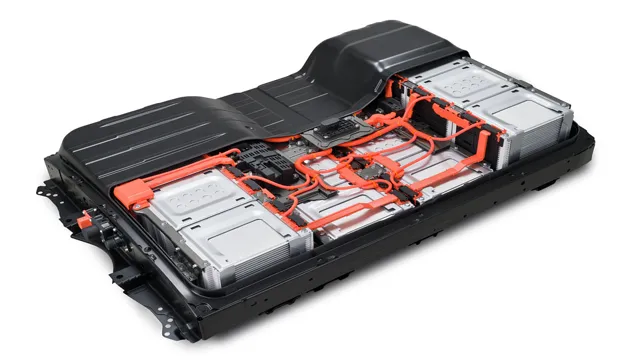
Key Factors Driving Growth
The electric car market in India has seen a significant growth in recent years, primarily driven by key factors such as government incentives, rising fuel costs and increasing environmental awareness among consumers. The Indian government has introduced various policies and incentives to promote the adoption of electric vehicles, including tax exemptions, subsidies and investments in charging infrastructure. Additionally, the volatile fuel prices have incentivized consumers to switch to electric cars as an economically viable alternative.
But it’s not just about cost savings; many Indian consumers are now much more environmentally conscious and are actively seeking out eco-friendly transportation options. This has led to a surge in demand for electric cars in the country, with various international and domestic automakers introducing new models to cater to this growing market. With all these factors coming together, it’s no surprise that the electric car market in India is poised for significant growth in the coming years.
Top Electric Car Battery Manufacturers in India
India’s move towards green transportation is gaining momentum as more and more people opt for electric cars. Electric car batteries manufacturers in India are playing a crucial role in revolutionizing the automobile industry. The top electric car battery manufacturers in India are Exide Industries, Amara Raja Batteries, Tata Chemicals, and Mahindra Electric.
These companies are leading the way in creating durable, efficient, and cost-effective batteries that power a range of electric vehicles. They are constantly innovating and improving their technology to reduce charging time, increase range and enhance safety, making electric cars a more viable option for people across the country. With encouraging government policies and rising awareness of green energy, India’s electric vehicle market is poised for significant growth, and these manufacturers are set to play a pivotal role in shaping its future.
Company Profiles and Product Offerings
Electric Car Battery Manufacturers in India India has been moving towards the adoption of electric vehicles, and the manufacturers of electric car batteries have been playing an essential role in this shift. Among the top electric car battery manufacturers in India are Tata Chemicals, Exide Industries, Amara Raja Group, and HBL Power Systems. Each of these manufacturers offers a range of products that cater to the diverse needs of the Indian market.
Tata Chemicals’ Magenta batteries are designed for performance, with a long life cycle and high performance in extreme temperatures. Exide Industries offers a range of batteries with different specifications, including long-range and fast-charging capabilities. Amara Raja Group’s Amaron batteries boast of their superior charge acceptance and longer service life, while HBL Power Systems specialize in Lithium-ion batteries for different applications.
India is poised to become an electric vehicle hub in the coming years, and these top electric car battery manufacturers are well-positioned to drive this shift in the automotive industry.
Comparing Battery Performance and Price
When it comes to electric cars, one of the major components that determine their performance and cost is the battery. India has seen a rise in demand for electric cars in recent years, and as a result, the country has also seen an increase in the number of electric car battery manufacturers. Some of the top players in this space include Exide Industries Ltd.
, Amara Raja Batteries Ltd., and Tata AutoComp’s Green Mobility division. Each of these manufacturers offers different types of batteries at varying price points.
Exide Industries, for instance, offers a range of batteries that are suited for different types of cars, with each battery boasting a different level of performance. Amara Raja Batteries, on the other hand, offers lithium-ion batteries that have a high energy density and lower weight, making them suitable for electric cars. And Tata AutoComp’s Green Mobility division offers batteries that are specifically designed for electric buses, ensuring that they are able to handle the demands of frequent charging and discharging.
Ultimately, the choice of battery will depend on a number of factors, including the performance required, the price point, and the type of vehicle.
Customer Reviews and Satisfaction Rating
When it comes to electric car batteries, there are several manufacturers in India that stand out from the rest. One of the top brands that consistently receives high customer satisfaction ratings is Exide Industries. Their batteries are known for being reliable, long-lasting, and efficient, making them an excellent choice for electric car owners.
Another popular brand is Amara Raja, which has a reputation for producing high-quality batteries that perform well in extreme temperatures. They have also received high praise from customers for their excellent customer service. Other notable brands include Tata Green, Okaya, and Luminous Power Technologies.
When looking for an electric car battery manufacturer in India, it’s important to consider not only the quality of the battery but also the brand’s reputation and customer satisfaction ratings. By doing this, you can ensure that you choose a manufacturer that you can trust to provide a reliable and long-lasting battery for your electric car.
Environmental Impact and Sustainability
When it comes to the environmental impact and sustainability of electric vehicles, one of the most important components to consider is the battery. As the demand for electric cars increases, so does the demand for electric car batteries manufacturers in India and around the world. These manufacturers must ensure that their production processes are environmentally responsible and that their batteries are recyclable at the end of their lifespan.
This is crucial in reducing the carbon footprint of electric cars and promoting a circular economy. Additionally, the adoption of electric vehicles can also reduce the amount of greenhouse gas emissions that are generated by traditional combustion engines. As consumers become more eco-conscious, the production of environmentally friendly electric car batteries will only continue to grow in importance.
Manufacturing Processes and Materials Used
When it comes to manufacturing processes and materials used, sustainability and environmental impact are two crucial factors facing the industry today. Traditional manufacturing methods often tend to be resource-intensive and produce a significant amount of waste. Therefore, manufacturers are now turning to eco-friendly materials and processes to minimize the impact they have on the environment.
For instance, recycled plastic is being used as a sustainable solution to produce functional and practical products for everyday use, with minimal environmental impact. Similarly, using solar panels or wind turbines as a renewable source of energy can help reduce the carbon footprint of manufacturing processes. At the same time, switching to lean manufacturing practices that prioritize efficiency and reduction of waste can help manufacturers cut costs and reduce environmental impact.
In conclusion, as industries continue to innovate and design more sustainable processes and materials, the use of eco-friendly manufacturing practices will become increasingly commonplace.
Lifecycle Assessment for Electric Car Batteries
Lifecycle assessment of electric car batteries is essential to understand the potential environmental impact and sustainability of these vehicles. Battery production, usage, and disposal can all contribute to carbon emissions and other pollutants. However, electric cars are generally considered more sustainable than traditional gasoline-powered vehicles due to their lower emissions and high energy efficiency.
A lifecycle assessment takes into account the entire process, from the extraction of raw materials to the end of the battery’s life, to determine the true sustainability of electric cars. While there are some concerns regarding the environmental impact of battery production, companies are focusing on improving production methods and utilizing sustainable materials to reduce their carbon footprint. It is important to consider these factors when making a decision regarding electric cars, as they have significant implications for the environment and future sustainability.
Conclusion and Future Outlook
As the world turns towards sustainable energy, electric vehicles have become a symbol of progress. However, without their trusty sidekick – electric car batteries – these vehicles would simply remain idle. India has emerged as a major player in the electric car battery manufacturing industry.
With a growing focus on clean energy, it is no surprise that some of the most innovative and eco-friendly batteries are now being produced in India. From advanced lithium-ion to cutting-edge solid-state batteries, the future looks bright for electric car battery manufacturers in India. So, if you’re looking to make the switch to a greener option for your vehicle, you might just have an Indian manufacturer to thank for making it possible!”
FAQs
What are some top electric car battery manufacturers in India?
Some top electric car battery manufacturers in India include Exide Industries, Amara Raja Batteries, and Tata AutoComp Systems.
Are there any incentives for purchasing an electric car in India?
Yes, the Indian government offers incentives such as tax exemptions and subsidies on the purchase of electric cars.
How long do electric car batteries last and what is their warranty period?
Electric car battery life can vary depending on the manufacturer, but typically ranges from 8-10 years. The warranty period also varies, but is usually around 8 years for electric car batteries in India.
What is the charging time for electric car batteries in India?
The charging time for electric car batteries in India can vary based on the vehicle and charging station, but it usually takes around 7-8 hours for a full charge on a standard charging station. Some fast-charging stations can charge a vehicle up to 80% in just 30-40 minutes.

